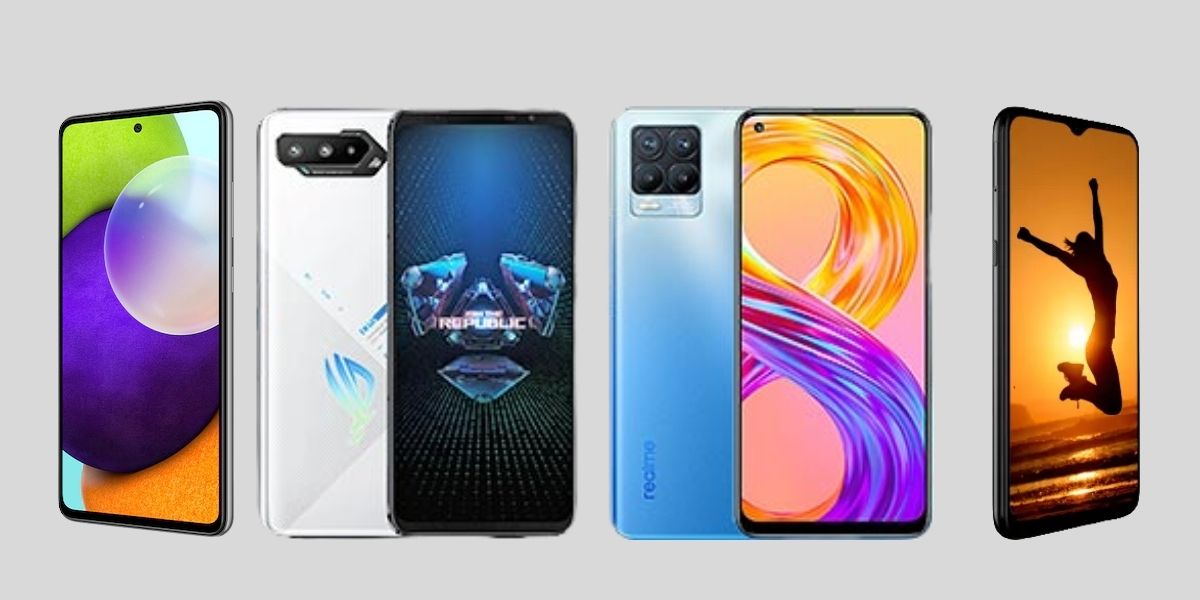Technology
7 Cell Phone Repair Myths Debunked By Phone Repair Shop Phoenix

Cell Phones have become the most important electronic gadgets. We use them daily for multiple purposes like communicating with family and friends, business, entertainment, assignments, navigation, and much more. Simply put, we cannot be detached from our smartphones now that our lives depend on them. When your phone faces a drop or impact, the first thing that comes to mind is to fix it yourself by looking at different tutorials on YouTube, or maybe you’d do something that your friend or neighbor might ask you to do to resolve the problem. After all, putting the smartphone in chai seeds and rice and walking backward around your room five times would dry your phone, right? DIYing or following hacks don’t hurt sometimes, but staying away from some of them is much better so your gadget can be permanently repaired. In this article, We Fix You Play, a phone repair shop in Phoenix debunked a few misconceptions and myths commonly believed by people.
7 Cell Phone Repair Myths Debunked
- The cell phone data will be wiped.
It is commonly believed that if you take your cell phone to a repair store, your data will be wiped out. However, that’s not true. People mostly face the issue of broken phones, unresponsive batteries, chipped-off screens, water damage, button damage, and much more, but these hardware-related issues don’t affect your data. Therefore, you can get your smartphone repaired without fearing data loss. If you still don’t have any confirmation, you can ask your expert technicians about it. He will tell you honestly if your data will be wiped or not. If your data faces a software problem, you might face data loss issues. It is always better to back up the data in any external storage drive. If you have iPhone, you can use iCloud to store your data.
- You have to go to a manufacturer.
If you have damaged your smartphone, it is unnecessary to go to a manufacturer to repair your device. Repairing the device from a manufacturer can cost you alot as well. Third-party repair shops like phone repair shops in Phoenix have technicians who are trained in this field and have years of experience. However, going to a manufacturer might feel like you are giving your device to experts, but third-party repairers also offer the same services and expertise at comparatively lower prices. If your phone is still under warranty, you can avail of the manufacturer’s services, but they will fix only the manufacturing defects. Therefore, it is better to choose a local and authentic repair store to get the job done.
- Your smartphone can’t recover from water damage.
Water is a fatal enemy of electronic gadgets. They don’t go along, but you can fix your phone if you accidentally drop it in the water. Many people panic after dropping their phones in the water. They think that the damage cannot be fixed. That’s not true. All you need to do is turn it off if you want to fix it quickly. Remember, water is a conductor. If you don’t turn off your smartphone, it can cause a short circuit in your phone and fry all the components. Switching it off will prevent accidents like these. The next thing you must do is take out the SD and SIM card and try to dry out all the openings, including speakers, microphones, and charging ports, with a dry lint-free cloth. Get it checked by the best cell phone repair in Phoenix. Their technical experts will fix your problem and bring your phone back to life.
- The absorbent will save the phone.
The most tried and tested trick people use to dry their phones is rice and chia seeds. They absorb water as they have water-absorbent properties, but they take a lot of time, and the results are unsure. Most people cannot wait 24 hours for their phones to improve because they have jobs. When the rice and seeds start working, the water reaches the delicate and fragile parts of smartphones causing further damage to the tiniest components.
- You can fix your phone on your own.
Many individuals try to DIY on their phones to fix the issue. Before doing that, remember that the technicians in phone repair stores have years of experience in the repair field. No matter how many tutorial videos you watch, you can never match their level of skills. Don’t experiment with your mobile phone by DIYing it. Taking your smartphone to an authentic cell phone store is always better.
- Repairs are expensive
Repairs are cheaper and more affordable than buying a brand-new device. The companies might tell you the opposite so that you’ll buy their expensive and over-priced gadgets but don’t fall for them. If you have dropped your phone, don’t decide to buy a new phone. Get it checked by a professional and ask about the damage done to it. If the damage is minor and can be fixed, don’t waste your money and prioritize the repairs.
- A cracked screen is no biggie.
Many people damage their phone screen and keep using the damaged screen without realizing that it can get serious damage. However, phone repair shop Phoenix says that if the shards of the broken screen are falling off, you must get it repaired without delay; otherwise, it will cause long-term damage like discoloration and dark and dead spots in the screen.
Read also : Kids Segways UK without handlebars | The history of Kidshoverboards
Technology
Ultimate Guide to Choosing a Laptop for Work and Play in 2024

Ultimate Guide to Choosing a Laptop for Work and Play in 2024
Are you in the market for a new laptop that can handle both your work and play needs?
With technology evolving at a rapid pace, it can be challenging to keep up with the latest trends and features. But fear not, as we bring you the ultimate guide to choosing a laptop for work and play in 2024.
In this comprehensive guide, we will explore the key factors to consider, the latest advancements in laptop technology, and provide valuable insights to help you make an informed decision.
1. Determine Your Needs
Before diving into the world of laptops, it’s essential to assess your specific requirements. Are you a professional who needs a powerful machine for demanding tasks, or are you a casual user who enjoys gaming and multimedia?
Understanding your needs will help narrow down your options and ensure you choose a laptop that caters to your specific use cases.
2. Consider Performance
When it comes to performance, there are a few key components to focus on: the processor, RAM, and storage.
In 2024, laptops are expected to be equipped with even more powerful processors, such as the latest generation Intel Core i9 or AMD Ryzen 9. Aim for at least 16GB of RAM to ensure smooth multitasking, and opt for a solid-state drive (SSD) for faster boot times and data access.
3. Display and Graphics
The display and graphics capabilities of a laptop play a significant role, especially if you plan on using it for multimedia or gaming purposes. Look for a laptop with a high-resolution display, preferably 4K, for crisp visuals.
Additionally, consider a dedicated graphics card, such as NVIDIA GeForce or AMD Radeon, for enhanced gaming performance.
4. Portability and Battery Life
If you need a laptop that can accompany you on the go, portability and battery life become crucial factors. Look for a lightweight and slim design that won’t weigh you down during your daily commute.
Additionally, aim for a laptop with a long-lasting battery that can withstand a full day of work or entertainment without needing frequent recharges.
5. Connectivity and Ports
Ensure that the laptop you choose has the necessary connectivity options and ports to meet your requirements. USB Type-C ports are becoming increasingly popular for their versatility, allowing you to connect various devices and peripherals.
Additionally, check for HDMI, Thunderbolt, and SD card slots if you frequently work with external displays or transfer files.
6. Operating System
The operating system (OS) is the software that powers your laptop and determines its user interface and compatibility with different applications. The three main options are Windows, macOS, and Linux.
Consider your familiarity with each OS and the software you rely on for work and play before making a decision.
7. Budget
Finally, it’s essential to establish a budget for your laptop purchase. Determine how much you are willing to spend and prioritize the features that matter most to you. Remember, finding the perfect balance between performance and price is key.
Summary
Choosing a laptop for work and play in 2024 requires careful consideration of your specific needs, performance requirements, display and graphics capabilities, portability, connectivity, operating system preferences, and budget.
By following the guidelines outlined in this ultimate guide, you’ll be equipped with the knowledge to make an informed decision that meets your requirements and enhances your productivity and entertainment experience.
FAQs
1. Can I use a gaming laptop for work-related tasks?
Yes, gaming laptops often come with powerful processors and high-performance graphics cards, making them suitable for demanding work tasks.
2. What is the average battery life I should look for in a laptop?
For optimal portability, aim for a laptop with a battery life of at least 8 hours.
3. Can I upgrade the RAM and storage of a laptop?
It depends on the laptop model. Some laptops allow for easy upgrades, while others have soldered components that cannot be changed.
4. Is a touchscreen display necessary for work and play?
A touchscreen display can enhance certain tasks, such as drawing or navigating touch-based applications, but it is not essential for all users.
5. Should I prioritize a lightweight design or a larger display?
It ultimately depends on your priorities. If portability is crucial, opt for a lightweight design. If a larger display is more important, be prepared for a slightly heavier laptop.
6. Are there any specific brands known for their durability?
Yes, brands like Dell, Lenovo, and Apple are known for producing laptops with durable build quality.
7. Where can I find reliable reviews and ratings for laptops?
You can find reliable reviews and ratings on technology-focused websites, such as CNET, PCMag, and TechRadar.
Technology
Top 13 Best Smartphones of 2024: Comparison & Review

Top 13 Best Smartphones of 2024: Comprehensive Review and Comparison
As technology continues to evolve at a rapid pace, smartphones have become an integral part of our lives. The year 2024 promises to bring even more innovation and excitement to the world of smartphones.
In this comprehensive review and comparison, we will explore the best smartphones of 2024, highlighting their features, performance, and overall value.
The Rise of 5G
One of the key trends in the smartphone industry is the widespread adoption of 5G technology. With its lightning-fast download and upload speeds, 5G has the potential to revolutionize how we use our smartphones.
In 2024, we can expect to see a wide range of smartphones that are 5G-enabled, allowing users to experience seamless connectivity and enhanced browsing capabilities.
Camera Innovations
The camera capabilities of smartphones have come a long way, and 2024 will be no exception. Smartphone manufacturers are continuously pushing the boundaries of what is possible with smartphone photography.
Expect to see smartphones with advanced camera setups, including larger sensors, improved low-light performance, and innovative features such as AI-powered image processing and computational photography.
Augmented Reality (AR) Integration
Augmented Reality (AR) has been gaining traction in various industries, and smartphones are no exception. In 2024, we can anticipate smartphones that seamlessly integrate AR technology into their user experience.
From AR gaming to interactive shopping experiences, AR integration will open up a whole new world of possibilities for smartphone users.
Enhanced Security Features
With the increasing amount of personal and sensitive information stored on our smartphones, security has become a top priority. In 2024, smartphone manufacturers will continue to enhance security features to protect user data.
Expect to see smartphones with advanced facial recognition technology, ultrasonic fingerprint sensors, and even more robust encryption methods.
Longer Battery Life
One of the perennial challenges of smartphones is battery life. In 2024, we can expect significant improvements in this area.
Smartphone manufacturers are investing in more efficient battery technologies, allowing for longer usage times on a single charge. Additionally, advancements in fast charging technology will make it easier and quicker to recharge our smartphones.
Artificial Intelligence (AI) Integration
Artificial Intelligence (AI) has already made its mark on the smartphone industry, and its influence will only grow stronger in 2024.
AI-powered virtual assistants will become even more intelligent and capable, offering personalized recommendations and proactive assistance. Furthermore, AI will play a crucial role in optimizing smartphone performance, improving battery life, and enhancing camera capabilities.
The top 13 smartphones of 2024 showcase a range of impressive features and advancements. Here’s a summary of some of the best models:
- Samsung Galaxy S23 Ultra: Known for its exceptional camera quality with a 200 MP main camera, it offers a 6.8″ Dynamic AMOLED display and runs on Snapdragon 8 Gen 2.
- Apple iPhone 15 Pro: It boasts a 6.1″ Super Retina XDR OLED display and is powered by the Apple A17 Pro chip. Its camera system includes a 48 MP main camera.
- Google Pixel 8 Pro: This phone features a Tensor G3 chip, a bright LTPO-OLED display, and upgraded cameras. It’s notable for its AI tools and long-term software support.
- Xiaomi 13 Ultra: It stands out with its high-quality camera system, including a 50 MP main camera, and runs on Snapdragon 8 Gen 2.
- Google Pixel 7a: As a mid-range option, it offers a Tensor G2 chip, a 90Hz display, and wireless charging, along with IP67 water resistance.
- Xiaomi Redmi Note 12 Pro+: This model is appreciated for its value, featuring a MediaTek Dimensity 920 chip and a 200 MP main camera.
- Samsung Galaxy Z Fold 5: A top foldable phone, it has a 7.6″ Dynamic AMOLED main display and uses Snapdragon 8 Gen 2.
- Samsung Galaxy Z Flip 5: Another foldable option, offering a compact design with a 6.7″ Dynamic AMOLED main display.
- Sony Xperia 5 V: Known for its elegant design, it features a 6.1″ OLED display and a dual-camera system with ZEISS optics, powered by Snapdragon 8 Gen 2.
- Xiaomi 13 Pro: This phone emphasizes camera quality with a 1-inch sensor for better light intake and detail in photos, and it also includes a large, high-resolution OLED display.
- Xiaomi 13: Offers a bright OLED display, Snapdragon 8 Gen 2 processor, and a robust battery life, along with a Leica-developed camera.
- Apple iPhone 15 Pro Max: A high-end version of the iPhone 15 Pro, providing a larger display and potentially enhanced features.
- Apple iPhone SE (2024): A budget-friendly iPhone option with an A15 Bionic chip, Touch ID, and a competent single rear camera.
Each of these smartphones brings something unique to the table, whether it’s camera performance, display quality, processing power, or value for money. Their selection depends on individual preferences and needs.
Summary
In conclusion, the year 2024 will bring a wave of innovation and exciting features to the world of smartphones.
From the widespread adoption of 5G technology to advancements in camera capabilities, AR integration, enhanced security features, longer battery life, and AI integration, smartphone users have a lot to look forward to.
As the competition among smartphone manufacturers intensifies, consumers can expect a wide range of options that cater to their specific needs and preferences.
FAQs
1. Are these smartphones available for purchase now?
No, the smartphones mentioned in this article are projected to be released in 2024. However, it’s always a good idea to check with the respective manufacturers for the most up-to-date information on availability.
2. Will 5G be available everywhere in 2024?
While the adoption of 5G is rapidly expanding, its availability may vary depending on your location. Major cities and urban areas are expected to have widespread 5G coverage by 2024, but it may take longer for rural and remote areas to receive full coverage.
3. Can I upgrade my current smartphone to 5G?
It depends on your current smartphone model. Some older smartphones may not be compatible with 5G networks, while newer models may offer 5G compatibility. Check with your smartphone manufacturer or service provider to determine if an upgrade is possible.
4. Are there any privacy concerns with AR integration?
As with any technology that collects and processes data, there are potential privacy concerns with AR integration. It’s important for smartphone users to be aware of the permissions they grant to AR apps and to use trusted sources when downloading AR content.
5. How can AI improve smartphone performance?
AI can improve smartphone performance by analyzing usage patterns and optimizing system resources accordingly. This can result in smoother multitasking, faster app launches, and overall improved user experience.
6. Will longer battery life affect the size and weight of smartphones?
Advancements in battery technology may allow for longer battery life without significantly increasing the size and weight of smartphones. Manufacturers are constantly working on improving the energy efficiency of smartphones to strike a balance between battery life and portability.
7. Can AI-powered virtual assistants replace human interaction?
While AI-powered virtual assistants are becoming increasingly capable, they cannot fully replace human interaction. Virtual assistants can assist with tasks and provide information, but they lack the emotional intelligence and nuanced understanding that human interaction offers.
Technology
The Rise of Quantum Computing: What You Need to Know in 2024

Introduction
Quantum computing, once a concept confined to the realms of science fiction, is now becoming a reality. With the potential to revolutionize industries and solve complex problems at an unprecedented speed, quantum computing is capturing the attention of scientists, researchers, and tech enthusiasts alike.
In this article, we will explore the rise of quantum computing and provide you with the essential knowledge you need to stay informed in 2024.
Understanding Quantum Computing
Quantum computing is a field of study that harnesses the principles of quantum mechanics to perform computations.
Unlike classical computers that use bits to represent information as either 0 or 1, quantum computers use quantum bits or qubits, which can exist in multiple states simultaneously.
This unique property, known as superposition, allows quantum computers to process vast amounts of data in parallel, leading to exponential speedup in certain calculations.
The Potential Applications
The potential applications of quantum computing are vast and diverse. From optimizing complex logistical operations to enhancing drug discovery processes, quantum computing has the power to transform industries across the board.
For example, in the field of cryptography, quantum computers could potentially break the encryption algorithms that currently secure our online transactions and sensitive data. On the other hand, quantum computing can also help improve encryption methods, making them more secure against quantum attacks.
The Challenges Ahead
While the promise of quantum computing is immense, there are several challenges that need to be overcome before its full potential can be realized. One of the primary challenges is the issue of qubit stability. Qubits are delicate and can be easily affected by external factors, leading to errors in computations.
Scientists are actively working on developing error-correcting codes and improving qubit stability to address this challenge.
Quantum Supremacy
In 2019, Google claimed to have achieved quantum supremacy, a significant milestone in the field of quantum computing. Quantum supremacy refers to the ability of a quantum computer to solve a problem that would be practically impossible for a classical computer to solve within a reasonable timeframe.
While this achievement marked a major breakthrough, it is important to note that practical quantum computers for everyday use are still in development.
Investments and Research
The race to develop practical quantum computers has led to significant investments and research efforts from both the public and private sectors.
Tech giants such as IBM, Google, and Microsoft are investing heavily in quantum computing research and development. Governments around the world are also recognizing the potential of quantum computing and are allocating funds to support research initiatives.
The Future of Quantum Computing
As we look ahead to 2024 and beyond, the future of quantum computing appears promising. With ongoing advancements in qubit stability, error correction, and algorithm development, we can expect to see more practical applications of quantum computing in various industries.
Quantum computing has the potential to revolutionize fields such as drug discovery, optimization, and machine learning, paving the way for exciting advancements and discoveries.
Summary
In summary, quantum computing is an emerging field that holds immense potential. With the ability to process vast amounts of data at unprecedented speeds, quantum computing has the power to transform industries and solve complex problems.
While there are challenges to overcome, the investments and research efforts being made indicate a promising future for quantum computing. As we move forward, it is essential to stay informed and keep an eye on the latest developments in this exciting field.
Frequently Asked Questions
1. How does quantum computing differ from classical computing?
Quantum computing differs from classical computing by utilizing qubits, which can exist in multiple states simultaneously, allowing for parallel processing and exponential speedup in certain calculations.
2. Can quantum computers break encryption?
Quantum computers have the potential to break encryption algorithms that currently secure our online transactions and sensitive data. However, quantum computing can also help improve encryption methods, making them more secure against quantum attacks.
3. What is quantum supremacy?
Quantum supremacy refers to the ability of a quantum computer to solve a problem that would be practically impossible for a classical computer to solve within a reasonable timeframe.
4. Which companies are investing in quantum computing?
Tech giants such as IBM, Google, and Microsoft are investing heavily in quantum computing research and development.
5. What are the challenges of quantum computing?
One of the primary challenges of quantum computing is qubit stability. Qubits are delicate and can be easily affected by external factors, leading to errors in computations.
6. How close are we to practical quantum computers?
While significant progress has been made, practical quantum computers for everyday use are still in development. Ongoing research and advancements are bringing us closer to this goal.
7. What are the potential applications of quantum computing?
Quantum computing has the potential to revolutionize industries such as drug discovery, optimization, cryptography, and machine learning.
-

 Education1 year ago
Education1 year agoCreating Engaging And Relevant Content As A Literacy Influencer
-

 Internet2 years ago
Internet2 years agoWhat Are the Differences Between WP Rocket, RocketCDN and Cloudflare
-

 Mobile Phones2 years ago
Mobile Phones2 years agoKnow About the New Upcoming Mobile Phones
-

 Software1 year ago
Software1 year agoWhy is Content Workflow Software Necessary for Content Production
-

 Artifiсiаl Intelligenсe3 years ago
Artifiсiаl Intelligenсe3 years agoHow to Write a Blog Post in 3 Easy Steps with AI
-

 Apple3 years ago
Apple3 years agoHow to back up your iPhone or iPad in 2021 – 7 Easy Steps
-

 Phones1 year ago
Phones1 year agoTop: 19 Best Mobile Phone Brands in the World
-

 Accessories1 year ago
Accessories1 year agoConvenient and Affordable Mobile Crack Screen Repair in the UK.














